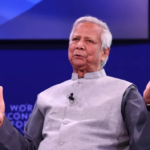
Retail investors are hitting the brakes. The IPOs of Schloss Bangalore (Leela Hotels) and Aegis Vopak Terminals were both undersubscribed in the retail category, with figures at just 83% and 77% respectively.
This comes as a clear break from the recent IPO euphoria.

For the average investor, it’s a signal shift. After riding the wave of flashy listings and grey market hype, retail investors are now asking tougher questions. “Is the valuation fair?” “What do the fundamentals look like?” These questions now matter more than the buzz.
To put things in perspective, the average number of retail applications in IPOs this year, up to May 24, stands at 16.7 lakh—down from 18.9 lakh last year, according to Prime Database. It’s the first drop since 2022, when interest had dipped sharply after a record 2021. Clearly, the thrill of the IPO chase is cooling off.
Belrise Industries is the exception here. Its IPO saw the retail portion oversubscribed 4.3 times just days before Leela and Aegis opened. So, what changed? It’s not the timing—it’s the trust.
Also Read Over 6 IPOs Set to Hit Markets in June, Eyeing Rs 8,000 Crore Windfall
Experts say this shift is long overdue. “Retail investors used to go by grey market premiums. Now they do their homework,” says Rakesh Choudhari of Keynote Capital. Metrics like P/E ratios, return on equity, and promoter track record have become central to decision-making.
And with trading platforms offering easy data access, investors aren’t just guessing anymore—they’re calculating.
January 2025 had seen IPOs receive over 32 lakh applications on average. But since then, the numbers have collapsed—falling below 2 lakh for most recent issues. This isn’t just about poor marketing or timing. It’s about market fatigue and smarter filters.
With nearly 140 companies lining up with over ₹2 lakh crore of IPO paper, bunching of issues is also thinning out retail appetite. Too many options mean investors can afford to be choosy.
That doesn’t mean the market is dead. As Raghav Gupta of IIFL Capital points out, mutual funds are still sitting on cash, and strong companies will find takers. But the days of “any IPO is a good IPO” are clearly behind us.
So here’s the truth: Retail investors are no longer the easy catch they once were. They’re not dazzled by shiny objects—they want value, sense, and substance. And for issuers, that’s a whole new ballgame.
Disclaimer:
This article is for informational purposes only and does not constitute investment advice. Please consult a certified financial advisor before making any investment decisions.
Also Read Groww IPO: Is the $7-8 Billion Valuation Justified Amid SEBI F&O Rules?












